Unlike physical wounds, an emotional wound causes pain at a deep psychological level and is far more damaging. An emotional wound is hard, but not impossible to heal!
The human mind, without a doubt, is the most powerful tool to ever exist on Earth. At its peak, there is no comparison to what it can think and achieve. However, at its vale, you will be surprised at the amount of darkness you could find there. Turning on the light there is not really as easy as Dumbledore made it sound. Even with a full-fledged wand.
The darkness we feel is more than often a manifestation of some sort of emotional grief − or wound if you please.
We have put together a process that you may follow to help heal an emotional wound. This would probably be a good time to mention that this article is not to be mistaken for professional guidance or therapy. Look at it as a letter from a distant friend who simply cares for anybody reading it.
How to heal your emotional wound?
Step 1: Accept that there is a problem.
For any sort of defect, you cannot hope to fix it if you refuse to acknowledge it. Examine your feelings. You may use your peers’ general feelings as a guide. Find out what is unusual about your emotions than theirs − if there is any. (Do not convince yourself of having a problem if you clearly don’t have one.) This may not be a helpful approach at all times though. Use any means to identify what is wrong. Once you actively start looking for the problem, you will find it. When you finally find it, start by telling it back to yourself. Talk it out or write it down. Try using the first-person pronoun: ‘I feel…’ , ‘I think I am so-and-so because…’ , ‘I know I am hurt because …’, etc.
Related: Effects of Growing Up as an Unloved Child and How To Heal
Step 2: Share your finds.
Sharing out your thoughts is considered healthy – both physically and psychologically. Talking to yourself is just the first step, because, it is clear that you are not capable of thinking up a solution. If you were, you’d have already found a way out of this darkness, and not so far into this article.
Choose a person. A correct person who you are comfortable with and whom you trust to listen to you without judging: it could be a parent (or even both), grandparents, sibling, cousin, best friend, any elder, a teacher, or even a counselor if needed. Whoever it might be, just talk. While talking, try not to make it sound like a sad story. You have to get over thinking of yourself as the victim. You are fighting this darkness − you are not a victim. You are a fighter right now.
Related: 6 Reasons Why People Who Cry Are Actually Much Stronger and Healthier Than Those Who Don’t
Try to look for something to be thankful for in whatever you are upset about and hold on to it. It could be something as simple as − I am going to be alright. It’s not so bad, really.
Step 3: Accept, love, and nurture yourself.
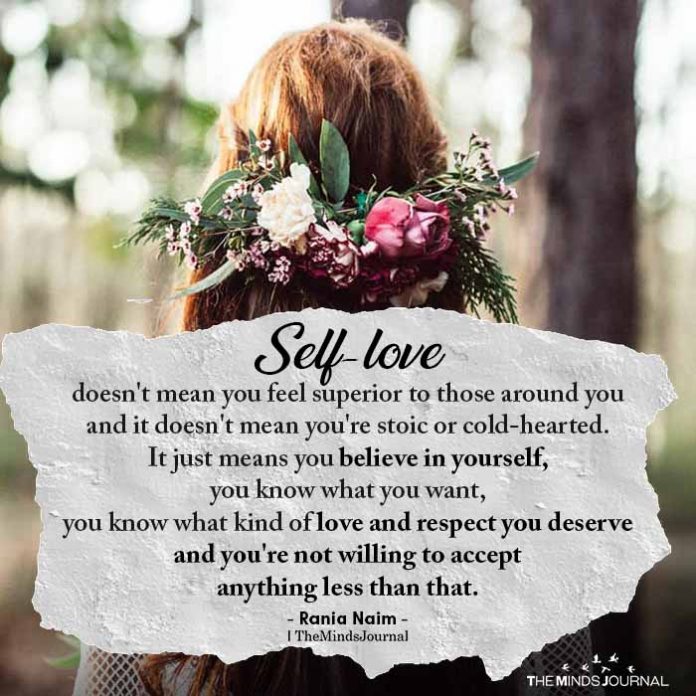
Sometimes, your guilt, your hurt, your misery can make you feel negative about your body. It could get very tempting to inflict the pain of your emotions onto your body. It would be a good idea to treat yourself as three different entities: your mind (that will be you), your heart and your body.
Decide which of them is the epicenter of the hurt − that would mostly be your mind or your heart, or both − and utilize the remaining ones to support the rest through this dark time. Treat your three entities as each other’s best friends. If at least one of them is unscathed or protected, all three will eventually be fine.
Related: 12 Tips To Self-Love And Compassion
One of the best medicines, after laughter, is sleep. (Anybody telling you otherwise has a long way to go.) Sleep regularly. Emotions can tire you out as easily as any physical activity.
Apart from that, eat properly. If you don’t feel hungry, fix three times − for breakfast, lunch and dinner − and eat substantial stuff (and not the low carb, low fat, low taste nonsense) on your own. Maybe you will be force-feeding, but it will take your body a long way.
Related: And This Is How We Heal
Indulge in activities that you normally love. It is okay to feel happy. Your mind will try to tell you that you deserve to not be happy. But that is a lie. Ignore your mind: you have a right to feel happy for your heart and body. Read, go on walks, cook, sing, hum, paint − do things. Utilize your time. Nurture yourself. Take care of yourself. Love yourself through it. You deserve it.
Step 4: Forgive and forget.
An important part of moving on is to give up what is holding you back. The only way to do it is by forgiving whoever you believe is responsible for it. Be it somebody else, some event or even you yourself: everybody deserves to be forgiven. However big the offense seems to you, however hard it feels to let go of the hurt or guilt, however unfair it feels, just… let it go. That, essentially, is the best closure you will ever get. It is also the only way to forget its gory parts and heal your emotional wound.
Related: I Am Hurting But I Am Also Healing
Step 5: Move on.
Life is supposed to be lived. Remember the three best friends (your mind, your heart, and your body)? They need to live − for each other. Remember All for one and one for all. Nothing that hasn’t killed you yet, can kill you even now. Moving on from time as dark as this is the bravest thing you will ever do for yourself, and you must. It can only go uphill from here. There is so much to do, so much to see, so much to explore, so much to discover. And you can do it all.
You are the best superhero you will ever get to save yourself and those three best friends. Be it.
Related video:
Are you ready to heal your emotional wound?
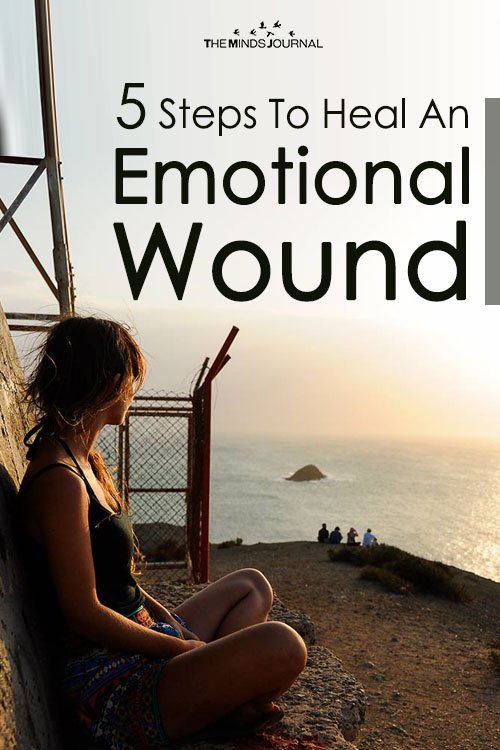
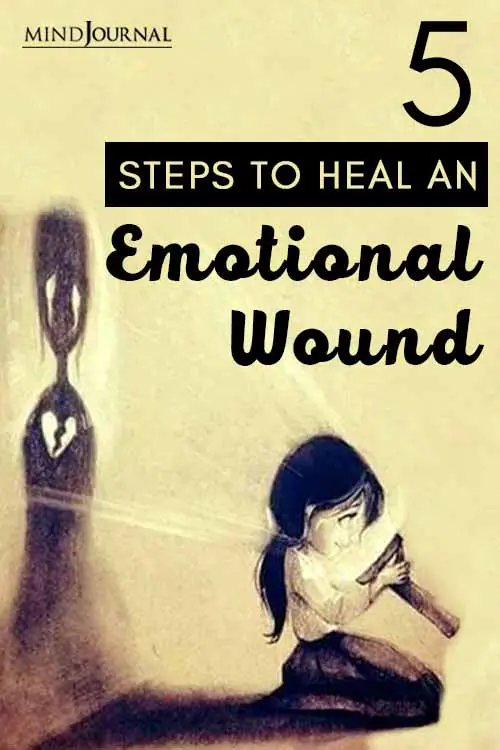
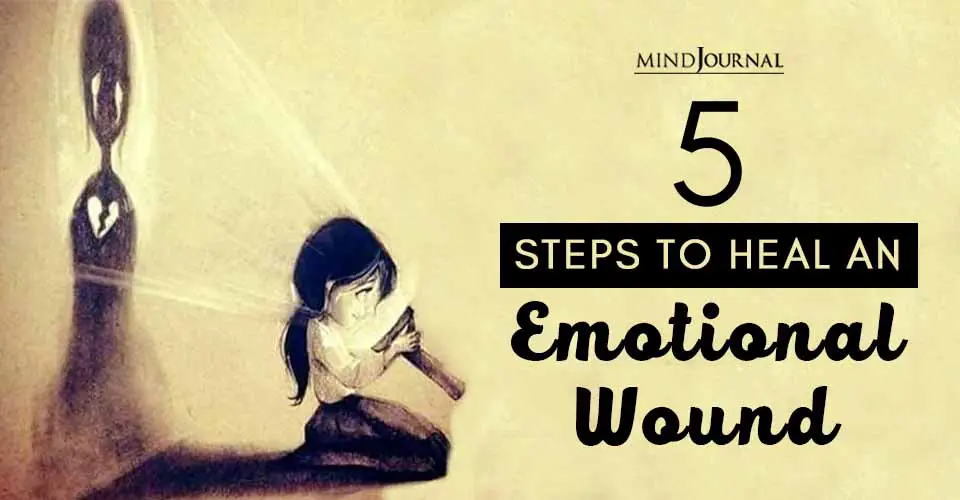





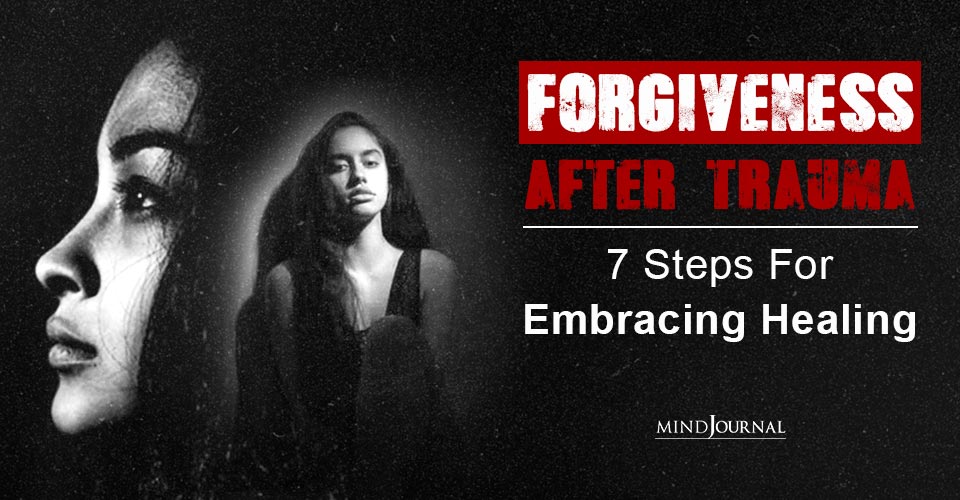

Leave a Reply
You must be logged in to post a comment.